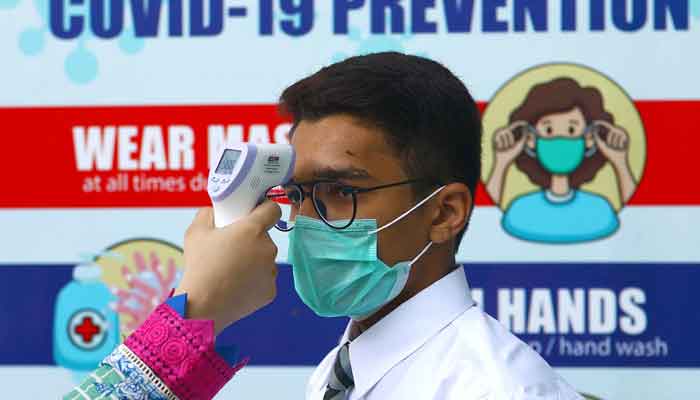Pakistan's effective screening, quarantine keeping Indian coronavirus variant at bay: NIH
1st case of Indian variant was timely detected through screening system put in place for international arrivals
May 30, 2021

The National Institute of Health (NIH) has confirmed the detection of the first COVID-19 infection with the Indian variant (B.1.617.2) in the country.
According to details shared by the Institute, the variant was detected in a 39-year-old, asymptomatic Pakistani individual, who was a resident of Azad Jammu and Kashmir and was returning home from a Gulf country.
The case was detected through the screening system put in place for international arrivals as he landed on May 8 and showed a positive rapid test conducted at the airport.
As per the government's mandated standard operating procedures (SOPs), the infected individual was quarantined at a government facility where additional testing (PCR) confirmed the presence of an Indian variant of coronavirus.
The individual, however, only showed mild symptoms during the quarantine period and was allowed to go home. He has completely recovered from the virus and has completed the mandatory isolation with further advice per medical protocols.
Pursuant to the confirmation of the B.1.617.2 (Indian) variant, the investigation team traced his family and close contacts in the district of residence obtaining samples, all of which tested negative for COVID-19. The NIH team is further tracing back his potential contacts during the air travel to rule out the possibilities of infections.
Appreciating the efficient screening and isolation system put in place for international travellers, the Ministry of National Health Services, Regulation and Coordination (MONHSRC) has stressed airlines strictly enforce the SOPs for travellers, including presenting a mandatory test report from an authentic lab in the country of origin.
While stringent screening on arrival continues to identify any further cases of the variant, who may arrive inadvertently, confirmatory testing and quarantine are being implemented.
The Ministry has further urged the general public to strictly observe the advised precautionary measures to stay protect themselves from the risks around them.









